

Best grade for MENDELU in Module 1 so far
The creative activity of research organizations, including universities, is evaluated according to Methodology 17+, which was updated this year to Methodology 25+. Module 1 is a key component of this methodology as it evaluates results that the university itself picks as its best results and which it submits to expert panels for peer review by remote reviewers. The contribution to knowledge in the given field (for basic research) and social relevance (benefit to society, applicability, commercial potential) are graded on a scale from 1 to 5, with 1 being the best and 5 the worst. In the H24 evaluation published here, our University received six 1 grades (3 FA, 1 FFWT, 1 FBE, 1 FH), ten 2 grades (4 FA, 3 FFWT, 3 FH), and nine grades of good (3 FA, 1 FFWT, 2 FBE, 1 FH, 2 FRDIS), which is considered a good result with demonstrable national application. Evaluation in Module 1 is a key part of evaluations, especially for universities. Evaluation in the higher education segment and subsequent classification into categories A, B, C, and D are based on the report of the international evaluation panel (MEP) and the outputs of the national evaluation in Module 1 – Quality of Selected Results, and Module 2 – Annotated Statistics (Bibliometrics)


Happening at MENDELU

Mendel University in Brno rector election approaching
Mendel University was established by Act No. 460 of 24 July 1919, and opened in 1919/1920 as the University of Agriculture in Brno. Since its founding it has gone through many changes, not just in its name and organizational structure but also in the way that the rector, the head of the university, is elected or appointed.
A brief history
The interwar period of the Czechoslovak First Republic (1919–1938) In this period, the typical model of university autonomy involved the academic senate or the academic staff electing the rector. The rector then had to be appointed by a state institution (a government body or the Ministry of Education).
The post-war years and Communism (1945–1989)
After World War II, state intervention in university life increased. Under Communism, rector elections became more-or-less a formality. Candidates had to be approved by party organs, and academic freedom was limited. The state played the main role in choosing the rector. Rectors were appointed based more on political than academic criteria. Although universities did enjoy autonomy, in practice they were governed by the regime’s ideological concerns and regulations.
After 1989 – the transition to democracy and the
present-day
With the fall of Communism, universities gained much greater independence. A system was founded in which the academic senate elected the rector based on scientific and teaching qualifications and their platform for leading the university. Today, it is normal for candidates for rector to present their vision for the university and discuss it with the academic community. Elections are transparent. Once the university has selected its rector, he or she is formally appointed by the president of the Czech Republic, who issues an appointment decree.
The rector’s term of office is established by university statutes and law (usually for four years), and a rector may be re-elected if the statutes allow it. How elections are held differs from university to university.


How is the MENDELU rector elected?
Pursuant to Act No. 111/1998 Coll. and the Rules of Procedure, elections are called by the Academic Senate, which is made up of 32 members: 21 academic staff and 11 students. Elections follow a fixed schedule. They begin with a nomination round, during which members of the academic community (staff and students) nominate candidates. The results of the nomination round are then made public, and the nominated candidates are asked if they would like to run. Then they must develop an electoral programme in which they present their visions and goals as rector. Before the election is held, these programmes are made public, and the candidates are presented at a meeting of the academic community. The full text of the announcement for the election of the rector for the term of office beginning on 31 March 2026 can be found here.
• A total of 34 people have held the position of rector over the course of the University’s history.
• The first rector was prof. PhDr. František Bubák.
• The first female rector was prof. Ing. Danuše Nerudová, Ph.D.
• The longest-serving rector was prof. Ing. Stanislav Procházka, DrSc., who was rector from 1986 to 1991 and then again from 2000 to 2006.
Ever member of our University’s academic community has the right to nominate a candidate for rector. The rector is then elected solely by the Academic Senate.
Happening at MENDELU
MENDELU AT ROAD CONFERENCE: STUDENTS DISCUSS MOBILITY OF THE FUTURE
On 11 September 2025, Mendel University in Brno participated in the Student Morning programme of the 32nd Road Conference, which was held in Brno. The slogan of the event was “Innovation, sustainability, efficiency.” The student block kicked off with a presentation of the Young Roads project, whose goal was to connect students with experts and companies working in road management. It was followed by a panel discussion titled “Mobility of the Future,” during which representatives from government organizations, universities, and companies spoke. The discussion addressed sustainability, technologies, innovation, safety, and a vision for transport in 2050. MENDELU contributed to the debate by offering insights on sustainable mobility. We presented four practical examples from the University. First, we presented the research project “How do universities move?”, which maps the daily transport habits of students and employees. The project’s results will be published in November. We also presented our participation in the European HEROES project, in which MENDELU is leading a work package focused on innovative mobility services. Conference delegates had the opportunity to visit the University Forest Enterprise Masaryk Forest in Křtiny, where the construction, maintenance, and repair of logging roads were demonstrated. Finally, we presented the activities of the Department of Technology and Automobile Transport, which focuses, among other things, on testing vehicles and developing alternative drivetrains. There was also a networking event where students could talk with university and company representatives and experts in transport safety.

News from the International Relations Office
In September, we welcomed 215 exchange students who came to MENDELU through Erasmus+ or bilateral agreements. During Welcome Week, organized by the International Relations Office and the MENDELU Erasmus Student Network, students tried out Czech-language lessons, visited the chateau in Lednice, tasted wine in Šakvice, explored the Moravian Karst, went on the zip line at Velká Dohoda, and ended with the Erasmus Student Network’s Flag Party. It was a wonderful week spent together, where many new friendships were made.
New rules from October: Foreigners starting work must be reported in advance
On 1 October 2025 an amendment to the Employment Act went into effect, introducing the legal concept of “unreported work.” The amendment affects the employment of foreigners (including EU citizens). Now, their start of employment must be reported before they begin working, regardless of the type of job contract they have. To meet this legal requirement, you must deliver proposals for closing or changing work contracts for a foreigner to the Human Resources Management Office three working days before the foreigner begins working or the contract change occurs. Notifications delivered after this deadline will not be processed.

The present and future of vocational education: A meeting of experts at MENDELU
On 17 and 18 September 2025 a meeting focused on the present and future of vocational education and teacher training was held at the chateau in Křtiny. The event was part of a project titled “Developing competencies relevant for actors in the undergraduate training of teachers for secondary vocational schools” funded by the Jan Amos Komenský Operational Programme. Attendees were welcomed by the rector of MENDELU, Jan Mareš. A plenary session followed, during which people involved in various aspects of vocational education spoke––teachers of vocational subjects and students, secondary school principals, and officials from the Ministry of Education, Youth and Sport of the Czech Republic and the National Pedagogical Institute of the Czech Republic. Their presentations opened up a space for a discussion about the current state of vocational education and possible directions for its future development. The meeting also included a moderated discussion between attendees, an informal meeting, and social and cultural events, including a tour of the Baroque pilgrimage Church of the Virgin Mary and a banquet that included a tasting of MENDELU wines. The second day focused on summarizing the conclusions and formulating further possible steps for cooperation––as part of an action plan. The meeting affirmed the importance of bringing together actors from universities, secondary vocational schools, public administration, and professional institutions, and it resulted in many inspiring ideas for the future development of teacher training in vocational subjects.
Trends in number of citations in WoS including and excluding self-citations for the five-year period 2020–2024
Happening at MENDELU
Employment of graduates in their field of study
Roundtable – Education and project opportunities for PhD students
Počet citací dle WoS (bez autocitací) za 5 let
Počet citací dle WoS (vč. autocitací) za 5 let
Internal quality evaluation
The Supplement to the Internal Evaluation Report, which is currently being commented on by University bodies, summarizes the most important recent quality management activities, including plans for developmental activities. The Supplement was produced pursuant to Section 77b, Paragraph 3 (b) of the Higher Education Act and describes changes in the internal quality evaluation of universities and qualitive results for the 2024 calendar year and the first half of 2025. Key quality-related events in this period include the change of the internal quality evaluation system; the change in the accreditation process; the defence of the HR Award; the evaluation of research, development, and innovation by an international evaluation panel; and reforming PhD studies. The document also mentions the development of software tools for supporting accreditation processes (ISAK and the SMART MENDELU accreditation module). This year’s quality evaluation resulted in many specific interesting findings. For example, the number of bachelor’s programme graduates increased by 21.5 % year-on-year. The number of students admitted to doctoral study programmes also increased, by 13.3 %. The number of international academic and research staff increased by 22.5 % to the current value of 77.9 FTE. In contrast, over the last six years, there has been a steady decline in the percentage of international students (they now make up 14.9 % of the student body). In the area of publishing activities by academic and research staff, there was a 27.8 % increase in the number of citations according to WoS over five years, excluding self-citations, and a 25.3% increase including self-citations. For more information about internal quality evaluation and the full text of the Supplement, see kvalita.mendelu.cz.
Graduate survey
This spring and summer we conducted a survey among fresh graduates and those who completed their studies a year ago. A total of 686 respondents took the survey out of the 2,517 people approached, a response rate of 27 %. The employment rate for all graduates was 85 %, of which 72 % of graduates work in their field of study or a closely related one. Detailed evaluations of the return rate, employment rate, and rate of employment in field of study are available on the Department of Quality and Risk Management website. The survey also included many other questions, addressing, for example, how satisfied they were with their studies, study preferences at MENDELU, and so forth. Data for the complete evaluation are available from the responsible people at the faculties and the Institute of Lifelong Learning.
Discounts for renting ski mountaineering equipment and splitboards for employees
Mendel University in Brno has signed a memorandum of cooperation with the ski mountaineering rental shop Skialpy jako víno Thanks to this new partnership, our employees can take advantage of a 10 % discount on courses and a 20 % discount on equipment rentals. You just need to show a valid employee card. The partnership encourages living a healthy lifestyle, being active in the outdoors, and taking a sustainable approach to winter sport, and at the same time strengthens the bonds between the University, graduates, students, and employees.
We cordially invite PhD students (especially those in their first year of study, but others as well) and their advisors to the event “Roundtable – Education and project opportunities for PhD students.” You will learn about upcoming events for PhD students, such as the MENDELU PhD Talent competition, MENDELU PhD Week and the seminars of the MENDELU PhD School, calls for grant applications issued by the Grant Agency of Gregor Johann Mendel, and opportunities to take DeepTech and Innovations courses. At the meeting, we’d love to hear your comments about the types of support or opportunities you’d like in this area. The roundtable will be held by the Rector’s Office’s Project Centre on 21 October 2015, at 10:00, in the centre’s meeting room (A04). Please register here
MEDIA HIGHLIGHTS
6 September – Ekolist.cz – Experts present forest pedagogy in Mongolia: HERE
8 September – iBrno.cz – Bio-foil may replace plastics in agriculture: HERE
12 September – Brněnský deník – New spurge species discovered in Somalia: HERE
18 September – Agris.cz – Automated shops in small villages: HERE
19 September – iVysílání – Home Alone – a presentation of the activities of the Department of Senior Education: HERE
Happening at MENDELU
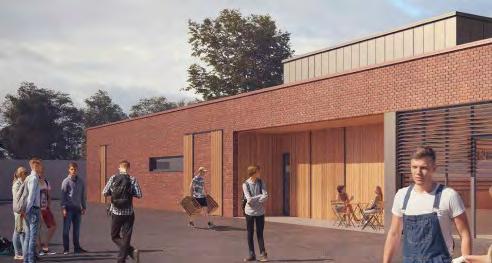
Current overview of construction work at MENDELU
What’s already done and what are just finishing up now
• Air-conditioning in Building A: At the end of July, the installation of new air-conditioners in the main building was completed. The last part was the construction of an acoustic wall in the outdoor space above the substation, which is a relatively prominent element on the building’s roof, which would deserve a better use, perhaps a mural?
• Structured cabling for Buildings A and B: Passive and active elements and cable connections were completed in August 2025.
• Renovation of hallways in Building A: This extensive project took more than a year to complete and involved replacing surfaces and installing utility fittings, air-conditioners, and interior furnishings. The Economic Department, the Human Resources Management Office, the Office of Accommodations and Catering, and the International Relations Office have moved or returned to the renovated offices and other rooms, and a large part of the Rector Office's wing is also new.
• Renovation of hallways and classrooms in Building B: This project consists of five stages, three of which are already complete. The toilets in both side wings and by the central stairway are complete.
• Work is continuing on the hallways on floors 1, 3, and 5, where the floors, doors, and lights are being replaced. The walls and ceilings will also be replastered and damp proofed.
• The final stage will be the renovation of the main stairway. In late February and early March of next year, we will complete the renovation project by adding new interior furnishings.
• Northeast entrance and parking lot: We are finishing up here, and the campus entrance on the corner of Drobného and Zemědělská streets will be open before you know it. The final minor finishing touches will be completed by October. The redesign will bring a fresh look to this space overall—from the expanded storage area for wood from the Faculty of Forestry and Wood Technology to seating along the newly created walkway and the new striking “Babylon” sculpture.
• Renovation of the library in Building A: The construction site was handed over in June, and we expect the entire project to be completed in December 2025. This is a comprehensive renovation project in a historical building that is sure to bring many surprises: old, broken plumbing, utility systems in bad shape, areas were damp proofing is missing, and leaks. Such unexpected complications require thorough solutions, leading to going over schedule and budget. Nonetheless, we believe the results will be worth it. The new, modern interiors will be a beautiful reward for this difficult work.
• Silviculturum: The renovation of the gazebo in Olomoučany, used for outdoor forestry lessons, was completed at the beginning of the summer holidays.
Ongoing and new projects being prepared
• MENDELU shop: Construction of a new shop with MENDELU merch on the ground floor of Building X began in June. A new glass wall has already been installed, and the carpentry workshop is working on new furniture. We expect work to be complete and the shop opened by the end of 2025. This construction project entails certain restrictions on the use of the building of which you have already been informed. We will try to open the study room on the ground floor in October.
• Renovation of ventilation systems and other classrooms: Some construction projects are already ongoing; for others we are still selecting contractors.
• Window blinds on Building Q: Our colleagues in Building Q can look forward to greater user comfort in their offices thanks to new exterior blinds on the northern side of the atrium, the installation of which is now being completed.
• Renovation of changing rooms in Žabčice: This is a very unique construction project. The contractors have been selected. We are just waiting for approval and handing over the site.
• Technology pavilion in Lednice: We are currently evaluating bids received from potential contractors. On this occasion, the long-planned relocation of high-voltage power lines is also underway.
• Mendeleum - Construction modifications and an annex will ensure that the Mendeleum building in Lednice is accessible and adapted for students with specific needs. The aim is to maximize students’ potential by creating excellent conditions for academic study. Renovation work will make the building barrier-free.
• Delivery of platform lifts for people with reduced mobility and spatial orientation: We will be installing seven lifts inside Buildings A, C, J, and N in certain stairways.
• Renovation of ventilation system in the auditorium of the Faculty of Regional Development and International Studies. The lecture hall in Building Z will be more comfortable for users and will also meet the hygiene requirements prescribed for this type of classroom.
On the horizon
• We are still planning on renovating Building K, including the construction of the MENDELU Innovation Hub––a new centre for student education, study, and innovation-focused projects; renovating the towers on Building A, distinctive architectural features that have unfortunately fallen into disrepair over time and are in dire need of renovation; and fully renovating the bathrooms and locker rooms at the Centre of Sports Activities and the fencing around the campus grounds in Černá Pole. Preparations are also underway for replacing and modernizing the heating system and renovating of institute 429 in Building B, renovating Q16, the Faculty of Regional Development and International Studies, and laboratories in Building C, as well as other important projects.
• And because MENDELU's campuses are extensive and many buildings are quite old, in addition to the above, we will also have to deal with many unplanned problems—defect claims, minor and major accidents, or smaller renovation projects.

Happening at MENDELU
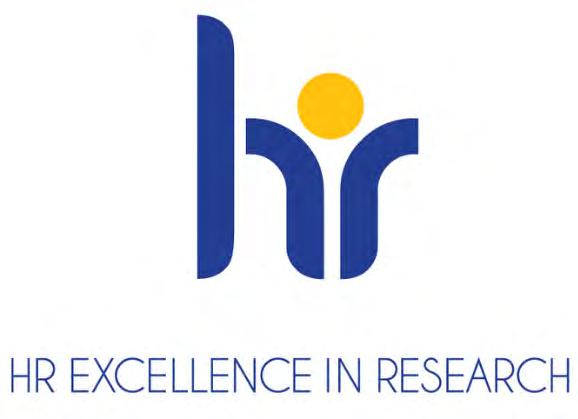
MENDELU successfully defends HR Excellence in Research Award
The HR Excellence in Research Award is awarded by the European Commission to institutes applying the principles of the European Charter for Researchers MENDELU first received this award in 2018, and our recent defence of the award confirms our commitment to continuing to create a transparent, attractive, supportive work environment for researchers in all stages of their careers. Key initiatives that contributed to our successful defence include open and transparent recruitment, a Welcome Office for foreign employees, an emphasis on ethics in research, open science, our PhD school, a gender equality plan, measures to promote work-life balance, and the prevention and resolution of inappropriate behaviour. There is room for further improvement, particularly in communicating the principles of the Charter, gathering feedback from researchers, internationalization, project support, technology transfer, and career development. We would like to thank everyone who contributed to these activities and to those who successfully presented MENDELU’s journey to evaluators from the European Commission.

Prolonging ISIC, ITIC, and ALIVE cards
The International Student Identity Card (ISIC) and the International Teacher Identity Card (ITIC) also serve as student and employee IDs at Mendel University in Brno. Students of accredited full-time academic programmes are entitled to an ISIC card. Academic staff members who have a permanent contract or a fixed-term contract for at least 12 months from the date of application for the card are eligible for an ITIC card. Students who are not eligible for an ISIC card can apply for an ALIVE student card, which entitles them to discounts, or a MENDELU student card, which is only valid on the University campus and does not offer any additional benefits. ISIC, ISIC, and ALIVE cards are valid for 16 months, from the beginning of September of year one until the end of December of the following year. Since 1 September 2025, the only way to renew ISIC, ITIC, and ALIVE cards is digitally. You can renew your ISIC in the Student Portal of the information system in the Orders section. Please ask your HR manager to extend your ITIC or ALIVE employee card. Renewal costs CZK 300. After the payment has been made and accepted, the validity of the digital card is automatically changed in the Alive App, which is used outside the University as evidence that the holder is entitled to discounts and has student or teacher
status. You must still use physical cards to enter classrooms, cafeterias, and the library at the University. Since this September, ISIC, ITIC, and ALIVE card holders have been able to request from the office for studies of their faculty or their HR department a free revalidation sticker.
This sticker is applied to an already-prolonged card. The stickers are not required and are intended for people who, for various reasons, cannot prove the validity of their ISIC/ITIC/ALIVE card in Alive App. Other card holders can continue to demonstrate the validity of their cards using the app and do not need to request a sticker. If the digital renewal fee has not been paid, the card is valid only until the end of the calendar year. ISIC/ITIC/ALIVE cards become invalid once they expire. The digital card will then no longer work and cannot be used to get discounts and other benefits from partners. You can find a list of discounts on the website of the Audiovisual Centre or of GTS ALIVE
Microcertificates and their practical application
The Institute of Lifelong Leaning has launched a new website providing basic information about microcertificates and their practical application as part of professional education. Here, employees will find instructions for how to get so-called micro-accreditation at MENDELU––that is, authorization to run a course whose graduates will receive a microcertificate.
Micro-accreditation is a part of the internal evaluation system and ensures that offered courses meet quality standards. The website provides an overview of information, procedures, and downloadable documents, and also contains contacts to offices and people who can provide methodological support.
Commemorating tragic event in Nicaragua
This year, 28 September will mark 14 years since the tragic accident in Nicaragua that took the lives of our colleagues Libor Severa, Zdeněk Hrubý, and Tomáš Kotrba. In respectful memory of them.
Happening at MENDELU

MENDELU heading to Gaudeamus
Mendel University in Brno will be presenting itself at this year’s Gaudeamus, the largest European post-secondary education and lifelong learning fair. The first stop will be in Bratislava from 7 to 9 October 2025, where our representatives will present our wide range of study programmes to students and prospective students. Our next stop will be at home in Brno, from 21 to 24 October 2025.
Change in cash desk opening hours
The Economic Department has announced that the opening hours of the cash desk will change as of 1 October 2025. Now, the cash desk will be open during lunchtime Opening hours of the cash desk from 1 October 2025:
• Monday–Thursday: 9:00–13:00
• Friday: 8:00–11:00
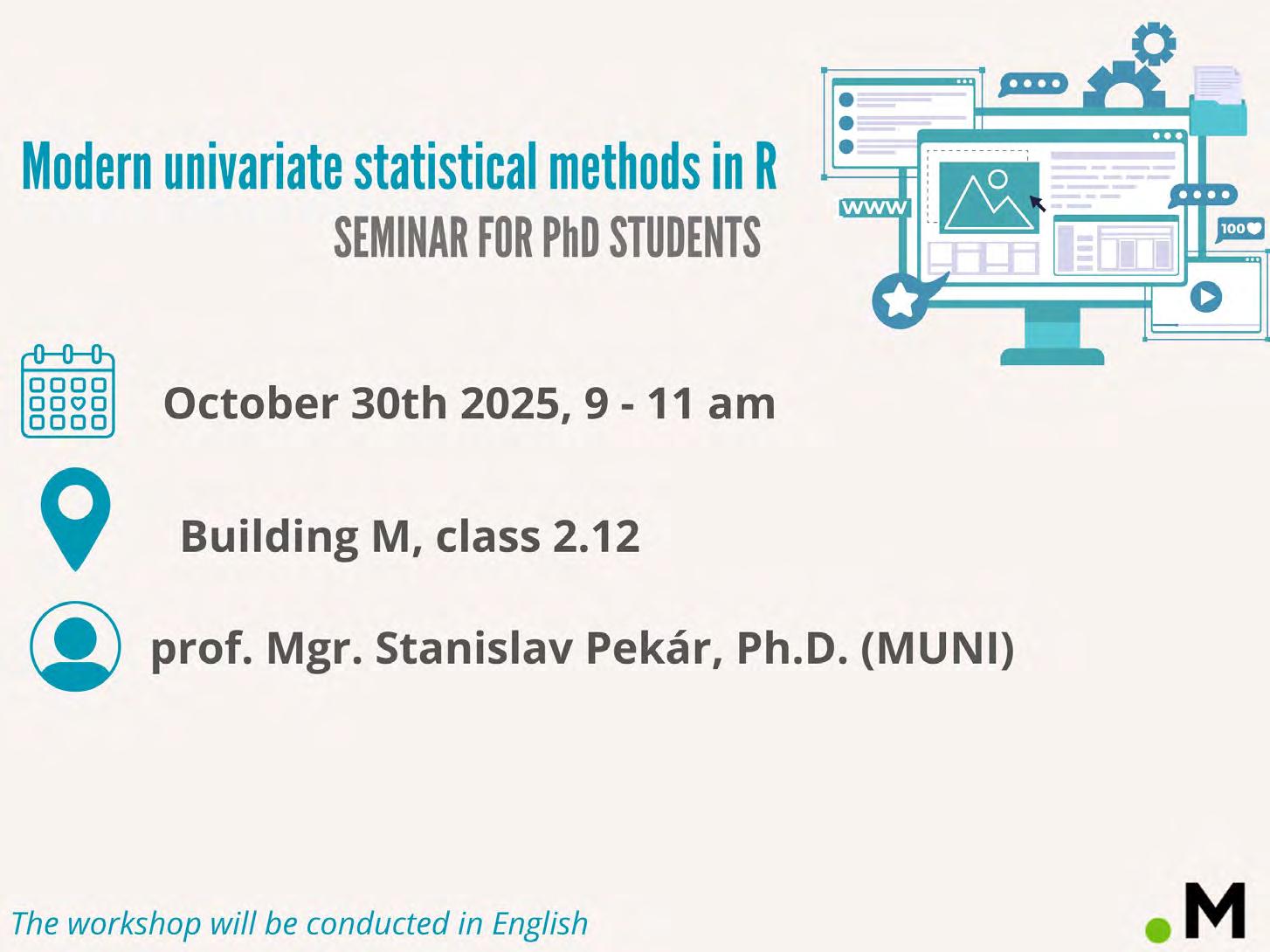
Modern one-dimensional statistical methods in R –seminar for PhD students
The Department of Science and Research invites you to a seminar focused on using modern one-dimensional statistical methods in R. Registration is required.
WHEN: Thursday, 30 October 2025, 9:00–11:00
WHERE: Building M, Classroom M2.12 (BA27N2002)
Lecturer: Mgr. Stanislav Pekár, Ph.D., Department of Botany and Zoology, Masaryk University
The goal of the seminar is to present the most frequently used statistical methods for analysing experimental data using concrete examples from the field of agroecology. Analysis will be conducted in R. The seminar will take place in English. You can find more information here: R seminar.

Researchers’ Night at MENDELU
On Friday, 26 October, Mendel University took part in the 20th annual countrywide Researchers’ Night. This year’s topic was wealth. All our faculties and several other University units held events. Neither the rain nor the cold weather kept people away. About 2,000 people visited the MENDELU campus. We would like to thank everyone who came and everyone who took part in organizing the events. We look forward to seeing everyone again next year. You can find photos here
From the world of science and research

Mendel University in Brno hosts first in-person meeting of InnovPrecMed consortium
The first in-person meeting of the InnovPrecMed international consortium, a European project, was held on 10–11 September 2025. The project brings together four universities, three research institutions, and four companies for the goal of developing the innovation ecosystem across Europe.
The two-day meeting kicked off with a speech delivered by Vicerector for Educational Affairs and Quality Ondřej Mocek, who emphasized the importance of connecting research, teaching, and innovation: “Through the InnovPrecMed project we want to connect science, education, and innovation so that knowledge doesn’t just stay on paper but turns into technology, solutions, and real impact.” The meeting included presentations by each project partner from the academic, research, and business sectors, discussions about the project’s future direction, and proposals for concrete steps in the upcoming period. Key topics included the following:
• the development of training courses for students and academic and non-academic staff
• support for course graduates in the form of mentoring and internships
• the development of an innovative environment and support for startups
• strengthening international cooperation within and outside of the consortium
Meeting attendees also had the opportunity to tour the labs of the Department of Chemistry and Biochemistry, engage in informal networking, and share experience. We would like to thank all the participants for the inspiring discussions and stimulating contributions. We look forward to our next shared steps in building a strong innovative ecosystem across Europe.
For more information about the project and opportunities for getting involved, visit the project website at www.innovprecmed.eu.
Category D winner announced by Grant Agency of Gregor Johann Mendel
The Gregor Johann Mendel Grant Agency of Mendel University in Brno has announced the winner of the internal competition for projects in category D – Applied research projects. The grant went to Ing. Lukáš Harabiš (AF) for his project “The validation of a biostimulant preparation from fish sludge for commercial use in crop production.” The project launched 1 October 2025. Congratulations!
InnovPrecMed project expanding regional cooperation in innovation
The InnovPrecMed project, coordinated by Mendel University in Brno, is expanding its activities in the region and strengthening ties between academia and industry. In recent days, two key memoranda of cooperation were signed: one with the South Moravian Innovation Centre (JIC) and one with the Faculty of Medicine of Masaryk University.
Both partnerships seek to strengthen innovation capacity in precision medicine and contribute to developing a sustainable ecosystem connecting research, education, and business. The memorandum signed with the JIC creates a framework for long-term cooperation in the fields of innovation, entrepreneurship,
and the commercialization of research results. Joint activities might include workshops, educational and networking events, or support for developing the business skills of researchers and students.
Establishing cooperation with the Faculty of Medicine of Masaryk University will expand the science and research dimension of the project. The memorandum enables the intense exchange of expert knowledge and capacities, the implementation of joint research and educational activities, and the development of technological solutions. An important component of the partnership is also boosting innovation and commercialization activities, creating new professional networks, and supporting interdisciplinary cooperation in precision medicine.
Both agreements directly support the main mission of the InnovPrecMed project––connecting science with practice, developing an innovation ecosystem, especially in precision medicine, and supporting the sustainable development of innovation culture across Europe.
For more information about the project and opportunities for getting involved, visit the project website: www.innovprecmed.eu.

From the world of science and research

Ethics in science and research: Tradition
and current issues –A seminar (not just) for PhD students
• Date: 24 October 2025, 9:00–11:00
• Location: Building M, Room M 2.12 (BA27N2002)
The Science Department cordially invites you to a seminar titled “Ethics in science and research: Tradition and current issues.” It will be led by Mgr. Helena Klimusová, Ph.D, an expert on this issue from the Department of Psychology of the Faculty of Arts of Masaryk University in Brno. The seminar is intended not only for PhD students but also academic staff and anyone else interested in this topic. The seminar will cover a range of topics related to ethical aspects of science and research.
What can you look forward to?
• Regulating research and institutional frameworks
• Risks associated with research involving human participants and working with vulnerable groups
• Informed consent: forms, content, limits (children, students, employees)
• GDPR and protecting data confidentiality
• Ethics in online research
• New technologies and AI in research… and other interesting topics!
Registration for the seminar is required.

When to request an assessment of a research project from the Ethics Committee for Research with Human Subjects?
The Ethics Committee for Research with Human Subjects is one of four advisory bodies of the rector of Mendel University in Brno. The committee deals with the ethical aspects of research activities involving human subjects, with the exception of activities falling within the remit of the Ethics Committee of Mendel University in Brno. The committee is made up of five expert members and chaired by prof. Dr. Ing. Milada Šťastná. The committee’s activities are governed by the Statues and Rules of Procedure of the Ethics Committee for Research with Human Subjects, which provide a framework for a uniform and comprehensible procedure for assessing applications for conducting research. The committee primarily assesses proposals for projects involving working with sensitive data associated with human subjects
(e.g., with questionnaires, photographs, audiovisual recordings, and documenting the mental, physical, or physiological state of individuals).
The Ethics Committee for Research Involving Human Subjects assesses the appropriateness of the research plan, its feasibility, and its methodology from an ethical point of view. It should be emphasized that the ethical aspects of a research project involving human subjects must be assessed before the project begins, not after the fact. Committee members will then have the chance to thoroughly go through the submitted documents and comment on them, the suitability of the methodology, and how personal and sensitive data will be handled in cooperation with the data protection officer.
The Ethics Committee for Research Involving Human Subjects cannot retroactively issue decisions on compliance with ethical standards of research. Please send requests for research project assessments to the email address predsedaKELS@mendelu.cz For more information, visit the website of the Ethics Committee: Etické komise/Ethics committee.
Pictures of new employees
For more MENDELU job offers click here.

Ing. Adam Baroš, Ph.D. Akademický pracovník – odborný asistent Ústav biotechniky zeleně (ZF)

doc. Ing. Inna Čábelková, Ph.D. Výzkumnice projektu III Ústav podnikové ekonomiky (PEF)

Ing. Lukáš Čumplík Výzkumník projektu I Ústav výživy zvířat a pícninářství (AF)

Ing. Jiří Gallus Akademický pracovník – asistent Ústav informatiky (PEF)

Amir Hashemi, Ph.D. Výzkumník projektu III Ústav chemie a biochemie (AF)

Ing. Karolína Chalupová Výzkumnice projektu II Ústav lesnické botaniky, dendrologie a geobiocenologie (LDF)

Michaela Kosíková Uklízečka Vnitřní správa Lednice (ZF)

Ing. Lenka Kudlová Výzkumnice projektu I Ústav výživy zvířat a pícninářství (AF)

doc. Ing. Tatiana Kuťková, CSc. Výzkumnice projektu III Ústav biotechniky zeleně (ZF)


Ivona Kurczová Administrátorka – technická pracovnice Ústav agrosystémů a bioklimatologie (AF)

Mgr. Martina Kynclová
Projektová manažerka – junior Projektové oddělení (AF)

prof. Ing. Radek Martinek, Ph.D. Výzkumník projektu IV Ústav zemědělské, potravinářské a environmentální techniky (AF)

Ing. Václav Mergl, Ph.D. Akademický pracovník – odborný asistent Ústav zakládání a pěstění lesů (LDF)
Pictures of new employees
For more MENDELU job offers click here.

Bc. Tereza Novotná
Správkyně informačních systémů Oddělení informačních systémů (OIT CP)

Ing. Barbora Odehnalová Výzkumnice projektu I Ústav výživy zvířat a pícninářství (AF)

Ing. Magdaléna Pavelková
Referentka zahraničních styků
Oddělení mezinárodních vztahů a internacionalizace (REK)
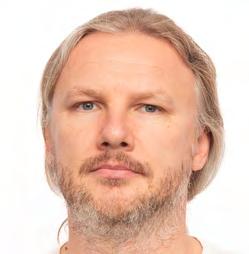
doc. Ing. Zdeněk Slanina, Ph.D. Výzkumník projektu III Ústav zemědělské, potravinářské a environmentální techniky (AF)


Ing. Mgr. Jitka Sládková, Ph.D. Ředitelka odboru Ústav vědecko-pedagogických informací a služeb (CP)

prof. Ing. Luboš Smutka, Ph.D. Výzkumník projektu IV Ústav podnikové ekonomiky (PEF)

Jarmila Štursová
Organizační pracovnice
Oddělení vzdělávání seniorů (ICV)

Bc. Martin Šulc Akademický pracovník – lektor Ústav informatiky (PEF)

Ing. Martin Šulík
Akademický pracovník – asistent Ústav zahradnické techniky (ZF)
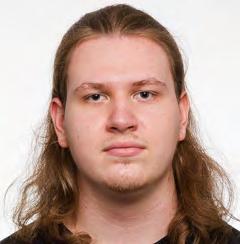
Bc. Jan Vavřina Akademický pracovník – lektor Ústav informatiky (PEF)

Ing. et Ing. Michaela Veselá Akademická pracovnice – asistentka Ústav informatiky (PEF)

Ing. Dominik Vilímek Výzkumník projektu III Ústav zemědělské, potravinářské a environmentální techniky (AF)
